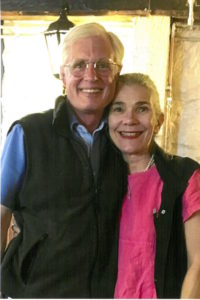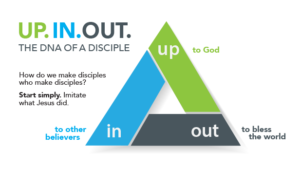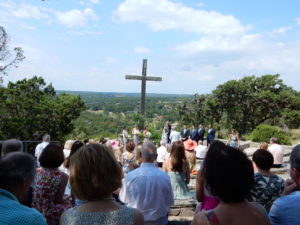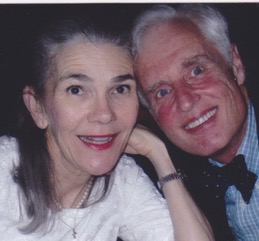 When I was young, our family often watched a television show, “Leave it to Beaver.” [1] It ran from 1957 to 1963. The show depicts the life of Ward and June and Bond and their two sons Wally and Theodore, who was known as the “Beaver.” The show reflected the hopes and dreams of those who lived through the depression and World War II and came home from the war to build modern American families. Ward was the loving and wise father. June was a perfect mother who often gave loving grace to her undeserving son. Wally was the perfect older brother. Beaver was the boy we all actually were—imperfect and often in trouble. Interestingly, by the time the show ended America was already in that great transformation that would occur as a result of birth control, no-fault divorce, and the Vietnam war.
When I was young, our family often watched a television show, “Leave it to Beaver.” [1] It ran from 1957 to 1963. The show depicts the life of Ward and June and Bond and their two sons Wally and Theodore, who was known as the “Beaver.” The show reflected the hopes and dreams of those who lived through the depression and World War II and came home from the war to build modern American families. Ward was the loving and wise father. June was a perfect mother who often gave loving grace to her undeserving son. Wally was the perfect older brother. Beaver was the boy we all actually were—imperfect and often in trouble. Interestingly, by the time the show ended America was already in that great transformation that would occur as a result of birth control, no-fault divorce, and the Vietnam war.
 Recently, Kathy and I went to see the sequel to the movie “Mama Mia.”[2]For those of you who haven’t seen the original movie, Mama Miais based is the story of the wedding of a young girl whose mother is a single parent who did not know who her father was. In the sequel, the daughter is now pregnant out of wedlock, separated from her boyfriend. The sequel fills in some of the blanks left by the original and continues the story to a sweet ending.
Recently, Kathy and I went to see the sequel to the movie “Mama Mia.”[2]For those of you who haven’t seen the original movie, Mama Miais based is the story of the wedding of a young girl whose mother is a single parent who did not know who her father was. In the sequel, the daughter is now pregnant out of wedlock, separated from her boyfriend. The sequel fills in some of the blanks left by the original and continues the story to a sweet ending.
Leave it to Beaverand Mama Miaillustrate social changes we have endured and the situation we are in today in America and the West. Vast numbers of people have no interest in traditional marriage. Even among conservative Christians, traditional marriage and family life are waning. In such a situation, some people might think Paul, writing 2000 years ago, has very little to say to us today. Nevertheless, I think we will find that Paul has a lot to say to our situation.
Christian Families in the 21stCentury
Paul social teachings in Ephesiansare interesting. Some scholars take the view that Paul is retreating from this strong doctrine of grace and his strong commitment to equality in Christ. To these people, the Paul of Ephesiansis not the Paul who proclaims in Galatians, “There is neither Jew nor Greek, there is neither slave nor free, there is no male and female, for you are all one in Christ Jesus” (Galatians 3:28). I think that these scholars are incorrect. What Paul is doing in Ephesiansis applying the doctrine of Christ to the circumstances of everyday life in the First Century. With this in mind, let us hear what Paul has to say in Ephesians 5:18-23:
18 And do not get drunk with wine, for that is debauchery, but be filled with the Spirit, 19 addressing one another in psalms and hymns and spiritual songs, singing and making melody to the Lord with your heart, 20 giving thanks always and for everything to God the Father in the name of our Lord Jesus Christ, 21 submitting to one another out of reverence for Christ.
22 Wives, submit to your own husbands, as to the Lord. 23 For the husband is the head of the wife even as Christ is the head of the church, his body, and is himself its Savior. 24 Now as the church submits to Christ, so also wives should submit in everything to their husbands.
25 Husbands, love your wives, as Christ loved the church and gave himself up for her, 26 that he might sanctify her, having cleansed her by the washing of water with the word, 27 so that he might present the church to himself in splendor, without spot or wrinkle or any such thing, that she might be holy and without blemish.[a]28 In the same way husbands should love their wives as their own bodies. He who loves his wife loves himself. 29 For no one ever hated his own flesh, but nourishes and cherishes it, just as Christ does the church, 30 because we are members of his body. 31 “Therefore a man shall leave his father and mother and hold fast to his wife, and the two shall become one flesh.” 32 This mystery is profound, and I am saying that it refers to Christ and the church. 33 However, let each one of you love his wife as himself, and let the wife see that she respects her husband.
Let us pray: Eternal God: As we consider the subject of Christian marriage and family life this morning, let your Holy Spirit come and dwell in all of our hearts, so that we can be transformed into the image of Christ who gave himself for us and for our families. In Jesus Name, Amen.
Principle 1: Everyone Always Imitate God All the Time.
 At one point this week, I was talking to someone on staff about the service and made the comment that at twenty-seven, the week before Kathy and I got married, I could have led a really good Bible study from Ephesians on marriage. I would have been quite confident that I understood the passage and knew what a Christian marriage was like. After forty years of marriage, I’m not quite as certain I know what I am talking about!
At one point this week, I was talking to someone on staff about the service and made the comment that at twenty-seven, the week before Kathy and I got married, I could have led a really good Bible study from Ephesians on marriage. I would have been quite confident that I understood the passage and knew what a Christian marriage was like. After forty years of marriage, I’m not quite as certain I know what I am talking about!
Ephesiansis not an easy book. For our purposes, we need to revisit two passages: First Paul begins by reminding the Ephesians that they were saved by grace because of the unimaginable love of God by faith, not because of works (Ephesians 2:8-9). This means, of course, that living out a Christian marriage and family life is primarily a matter of Grace, not of works or obedience to the law or set of rules.
Second, in Chapter 5, Paul by asking the Ephesians to:“… be imitators of God, as beloved children. And walk in love, as Christ loved us and gave himself up for us, a fragrant offering and sacrifice to God” (Ephesians 5:1-2). In the end, we all know that most of the problems of life, and most of the problems of marriage and family life, would disappear if we all loved one another as God loves the world and as Christ gave himself up for us on the cross. This pretty simple to understand; it is just impossible to do.
The cross was not easy for Jesus, and the crosses we must bear for our families and loved ones are no less easy. This week, I had the opportunity to share the story of a couple. When young, they were brilliant and good looking. Unfortunately, one of them had a serious, hidden disease. The couple been married now for over fifty years. It has not been an easy marriage. It hasn’t been a fun marriage. It has involved a lot of sacrifice, physical, mental, and emotional. But, it has lasted and blessed many people, including their children.
Principle 2: Everyone Be Submitted in Love to One Another All the Time.
This brings us to the second and the most controversial passage about marriage in the Bible. Paul asks wives to “submit” to their husbands. It’s often missed that, before Paul asks wives to be submitted to husbands, he asks Christians in general to be submitted to one another. He begins by asking everyone to “submit to one another out of reverence for Christ” (Ephesians 5:21). This is important. Paul is not saying, “Husbands you don’t have to submit; but wives you must submit.” He’s not even saying, “Husband you have to submit, but wives you have to really, really, really submit”. He is saying, “Wives you should submit as everyone has to submit.”
I think it help to understand a bit about this word, “submit”. The word literally means to “stand under.” A person submits to another person when they yield their own desires to the needs, not demands, of the other. The idea of submission does not mean, “Be stupid” or “Allow others to abuse you.” It means that, in day-to-day life, consider the needs, hopes and dreams of the other to be as important, or even more important, than your own.
Think of a mother of small children. Kathy is a normal person. She likes to be around her friends. She likes to go out to lunch. She likes to go to Zumba lessons. She enjoys travel. But, when our children were young, she spent most of her time caring for the needs of our children. It wasn’t that her desires and wants were unimportant or wrong. It was that love motivated her to care for her children. She submitted her personal desires to her children out of love for them.
Years ago, I counseled a young woman who was abused by her husband. Her pastor counseled her to submit to the abuse. Her friends sent her to me. It was one of the few times when I had to tell another person to ignore their pastor’s advice. Submission does not mean behave stupidly or submit to mental or physical abuse. It means Christians are called to consider the needs of others as just as important as our own needs and desires.
Principle 3: Everyone Always Love Like Jesus
This brings me to our final teaching. After Paul teaches wives to submit to their husbands and respect them, he tells husbands to love their wives. But he doesn’t just say love your wives. He doesn’t say be romantically attached to your wife. (Most husbands don’t initially have any problem with romantic attachment.) Paul says, “Husbands, love your wives, as Christ loved the church and gave himself up for her….” (Ephesians 5:25-27). In Paul’s world, husbands were the absolute rulers of their families. Telling wives and children to respect and obey was not radical advice. It was expected. However, what was completely unexpected was to tell husbands to love their wives, and not just a love them, but to love them enough to go to the cross and suffer and die for them. What was radical about Christians was not that they spoke a lot about love, but that they used a word for love that referred not to attractive love or affectionate love or brotherly or sisterly love, but to self-sacrificing love. Sacrificial love was radical then and is still radical today.
The love that God wants Christians to have for one another, for Christian wives to have for their husbands, and especially for Christian husbands to have for their wives, is a love that does not demand or require submission but gives everything for the sake of the other. This is not an easy love or a natural love, it is a supernatural love. It is the love that creates and makes possible all other loves. It is the love by which God created and sustains the universe, his people, and his church.
 Not all marriages are easy. It so happens that Kathy and I do not have a particularly easy marriage. We are very different people. We have different fundamental values. We generally prefer different things. We don’t agree on restaurants, food, clothing, or even lipstick! We have some close friends who agree on everything! We’ve been friends since the day we got married. We are exactly the same age. We have raised our children together. There’ve been times what it would have been easy to look at their marriage and conclude that Kathy and I had made a mistake getting married. Then, several years ago, something happened. All of a sudden, I realized that Kathy and I actually had the better marriage. Despite all of our differences, despite all of our arguments and disagreements, somehow through the events of life, our marriage has been a greater protection and encouragement to personal growth for both of us. I wanted to say this today for a simple reason: to encourage you. Just because a marriage is hard doesn’t mean it’s a bad marriage. Just because your children are difficult to raise, doesn’t mean your family isn’t a good family. Sometimes, God takes the most difficult things and makes them the most beautiful things of all.
Not all marriages are easy. It so happens that Kathy and I do not have a particularly easy marriage. We are very different people. We have different fundamental values. We generally prefer different things. We don’t agree on restaurants, food, clothing, or even lipstick! We have some close friends who agree on everything! We’ve been friends since the day we got married. We are exactly the same age. We have raised our children together. There’ve been times what it would have been easy to look at their marriage and conclude that Kathy and I had made a mistake getting married. Then, several years ago, something happened. All of a sudden, I realized that Kathy and I actually had the better marriage. Despite all of our differences, despite all of our arguments and disagreements, somehow through the events of life, our marriage has been a greater protection and encouragement to personal growth for both of us. I wanted to say this today for a simple reason: to encourage you. Just because a marriage is hard doesn’t mean it’s a bad marriage. Just because your children are difficult to raise, doesn’t mean your family isn’t a good family. Sometimes, God takes the most difficult things and makes them the most beautiful things of all.
Be Willing to Live in a Mystery
Christian marriage will always be a mystery because God is a mystery and God’s love is a mystery. Paul ends this teaching with these words,
“Therefore, a man shall leave his father and mother and hold fast to his wife, and the two shall become one flesh.” This mystery is profound, and I am saying that it refers to Christ and the church. However, let each one of you love his wife as himself, and let the wife see that she respects her husband. (Ephesians 5:31-33).
 One of my favorite books is by British clergy W.H. Vanstone. It is called, Love’s Endeavor, Love’s Expense: The Response of Being to God. [3]This book, written by an ordinary British clergyman, has been the subject of conversation by people from ordinary pastors like me, to counselors, to quantum physicists. There’s nothing fancy about the book, but it is profound. At the center of the book, Vanstone makes four points:
One of my favorite books is by British clergy W.H. Vanstone. It is called, Love’s Endeavor, Love’s Expense: The Response of Being to God. [3]This book, written by an ordinary British clergyman, has been the subject of conversation by people from ordinary pastors like me, to counselors, to quantum physicists. There’s nothing fancy about the book, but it is profound. At the center of the book, Vanstone makes four points:
- Love does not set limits;
- Love acts for the benefit of the beloved, not for the benefit self; and finally
- Love is vulnerable and can always be hurt, betrayed or fail.
Love, in the end, is a great mystery. I want to close with a quote from Vanstone that says it all:
Where the object of love is truly the ‘other’, the activity of love is always precarious. Between the self and the other there always exists, as it were, a gap which the aspirations of love may fail to bridge or transcend. That which love would do or give or express may fail to arrive—through misjudgment, through misunderstanding, or through rejection. Love may be frustrated: its most earnest aspirations may come to nothing: the greatness of what is offered may be wholly disproportionate to the smallness of what, if anything, is achieved. Herein lies the poignancy of love, and its potential tragedy. The activity of love contains no assurance or certainty of completion. The progress of love must always be by tentative and precarious steps: and each step that is taken, whether it succeeds or fails becomes the basis for the next and equally precarious step….
…
A happy family life is neither a static situation nor a smooth and direct progression: it is an angular process, the endless improvisation of love to correct what it has created. [4]
In the end, both “Leave it to Beaver” and “Mama Mia” promise a happiness that cannot be delivered, not by an historic cultural norm or a commitment to violate those norms in the name of romantic love. Neither a romantic or traditional view of marriage will work. Love is the answer, but it is the self-giving love Christ showed on the cross that works in life and in marriage, not a romantic or legalistic love, but the love through and in which the world was made.
Amen
Copyright 2018, G. Christopher Scruggs, All Rights Reserved
[1]See, Leave it to Beaverhttps://en.wikipedia.org/wiki/Leave_It_to_Beaver(downloaded July 26, 2018). This particular sermon is an update of one that I preached many years ago. I could not find the original, and I am glad for that. Most young people today do not even know what Leave It To Beaver refers to!!
[2]See, Mama Miahttps://www.imdb.com/title/tt0795421/ (Downloaded July 26, 2018) and Mama Mia: Here We Go Againhttps://www.mammamiamovie.com/(Downloaded July 26, 2018). Both movies are quite cute and the music and dancing is great.
[3]W. H. Vanstone. Love’s Endeavor, Love’s Expense: The Response of Being to the Love of God(London. ENG: Darton, Longman & Todd, 1977). This is a book I recommend to everyone. It’s not easy, but it’s transforming.
[4]Id at 46-47.

















































